When applying for a child visa at an embassy, it's essential to present your request clearly and professionally. Begin by addressing the relevant authorities and providing key information about your child's identity, purpose of the application, and supporting documents. Remember, a well-structured letter can significantly impact the processing of your visa request. Join us as we explore a comprehensive letter template that can guide you through this important process!
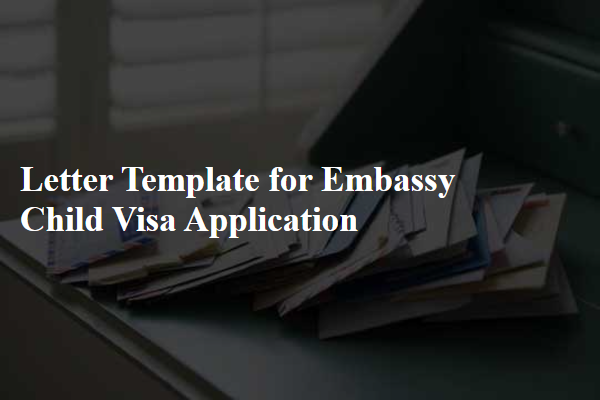
Applicant's Personal Information
When applying for a child visa at an embassy, it is crucial to provide comprehensive personal information about the applicant. The applicant's full name should be clearly stated, alongside their date of birth (mention the specific day, month, and year) for accurate identification. Include the child's nationality and current residence address, along with a valid passport number and expiration date to ensure valid travel documentation. If applicable, mention the school or educational institution the child attends, providing details like the name, address, and grade level. Additionally, include the names and contact information of parents or legal guardians, ensuring clarity in custody arrangements. Highlight any relevant medical information (like allergies or recent vaccinations) that could impact travel plans or requirements.
Child's Identification Details
Completing the application for a child visa requires comprehensive details regarding the child's identity. Essential components include the child's full name, date of birth (month, day, and year), and place of birth (specific city and country). The child's nationality should be clearly stated, and any previous passport information must be included if applicable. Additionally, documents confirming parental or guardian consent are necessary, highlighting their names, addresses, and relationship to the child. Accompanying documents may also include a copy of the child's birth certificate and photographs adhering to the embassy's biometric specifications. All these details ensure a smooth application process for the child's visa.
Purpose of Visit and Travel Itinerary
The purpose of the visit for the embassy child visa application centers on family reunification and cultural enrichment, with special emphasis on the significance of educational experiences in a diverse environment. The travel itinerary outlines a planned journey from the home country to the destination, consisting of a departure from City A, possibly on September 1, 2023, with a flight duration of approximately 12 hours to Land B. Upon arrival, there are scheduled activities including visits to historical sites such as Landmark C and educational institutions like School D. The itinerary also includes accommodations at established Hotel E, renowned for its family-friendly amenities and proximity to local attractions. Return travel is planned for September 30, 2023, ensuring a comprehensive experience that fosters international understanding and bonds family connections.
Proof of Relationship to the Child
When submitting a child visa application to an embassy, proof of relationship to the child is essential. Relevant documents include a birth certificate, which should detail the child's full name, date of birth, and the parents' names, providing legal verification of the parental relationship. In cases of adoption, an official adoption decree from the competent authority must be included, confirming the transition of parental rights. Furthermore, custody agreements can serve as supporting documentation, especially in instances of divorce or separation, to clarify guardianship status. It's vital to ensure that all documents are notarized or certified where necessary to validate authenticity.
Financial Sponsorship and Support
A financial sponsorship letter for an embassy child visa application should clearly outline the sponsor's details, including their full name, relationship to the child, and financial capability. The letter should state the purpose of the sponsorship, specifying that it is aimed at covering expenses such as education fees, healthcare, and daily living costs while the child resides in the host country. It's important to provide specific figures, detailing monthly or yearly financial contributions, such as salary (example: $5,000 per month) or savings (example: $50,000 in bank account), to demonstrate stability and ability to support. Additionally, including any documentation, such as bank statements or employment letters, can solidify the commitment to the financial sponsorship. Noting that the sponsor is prepared to submit periodic updates or reports to the embassy may also enhance the application.
Letter Template For Embassy Child Visa Application Samples
Letter template of embassy child visa application for educational purposes.
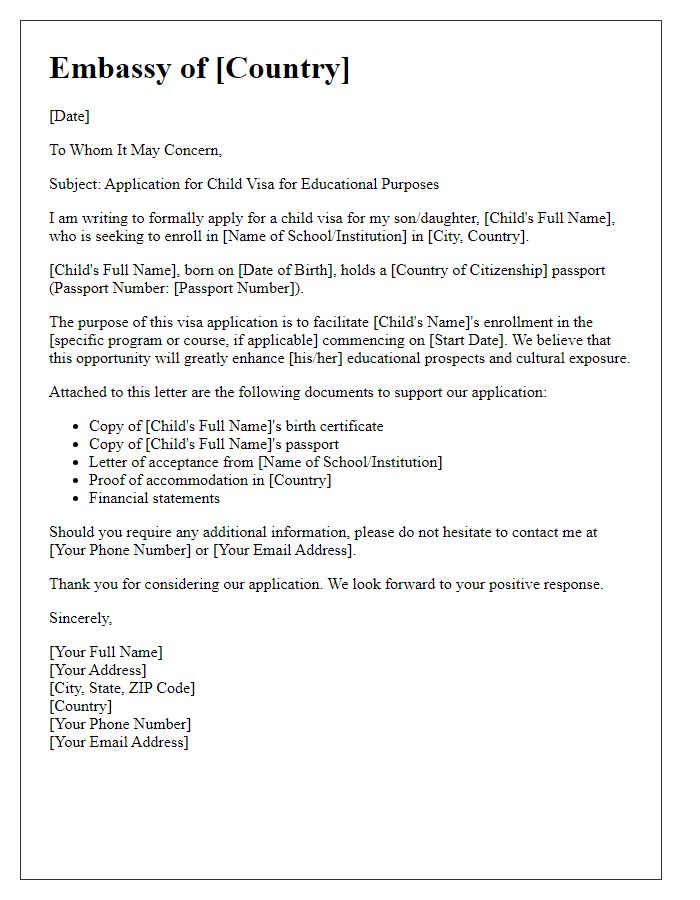
Letter template of embassy child visa application for family reunification.
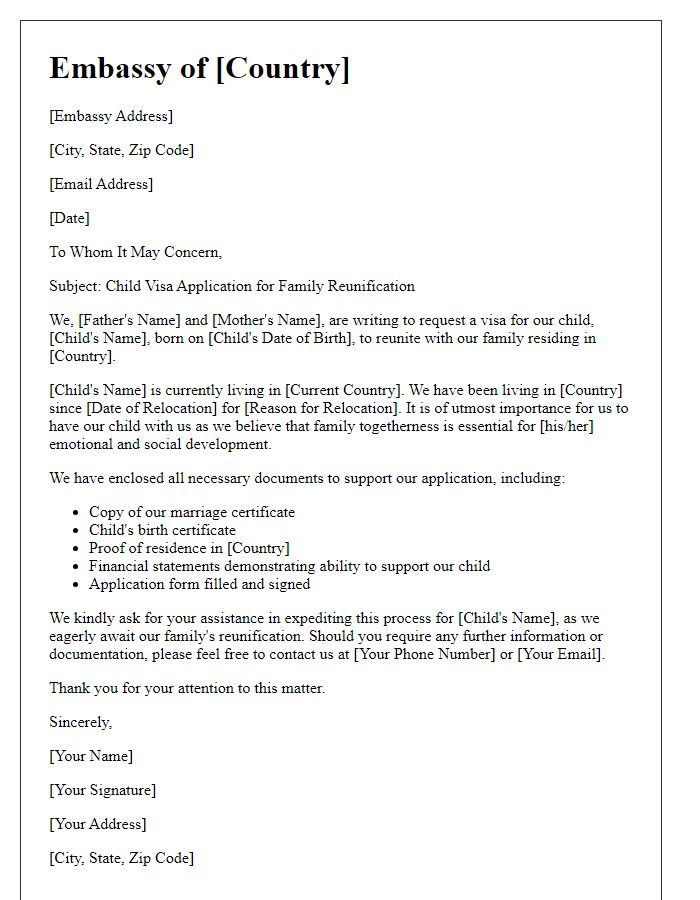
Letter template of embassy child visa application for medical treatment.
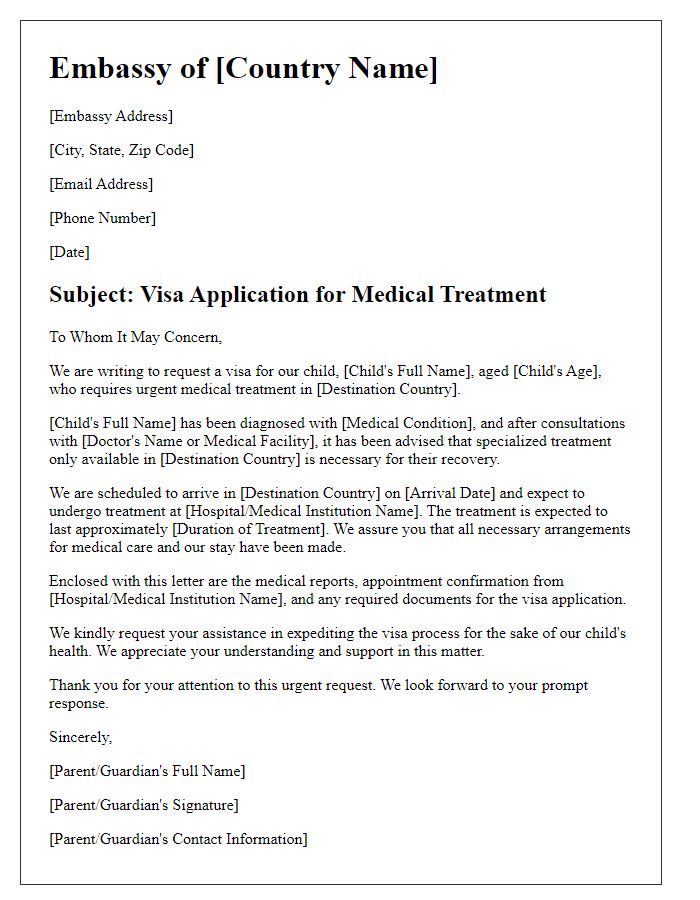
Letter template of embassy child visa application for cultural exchange.
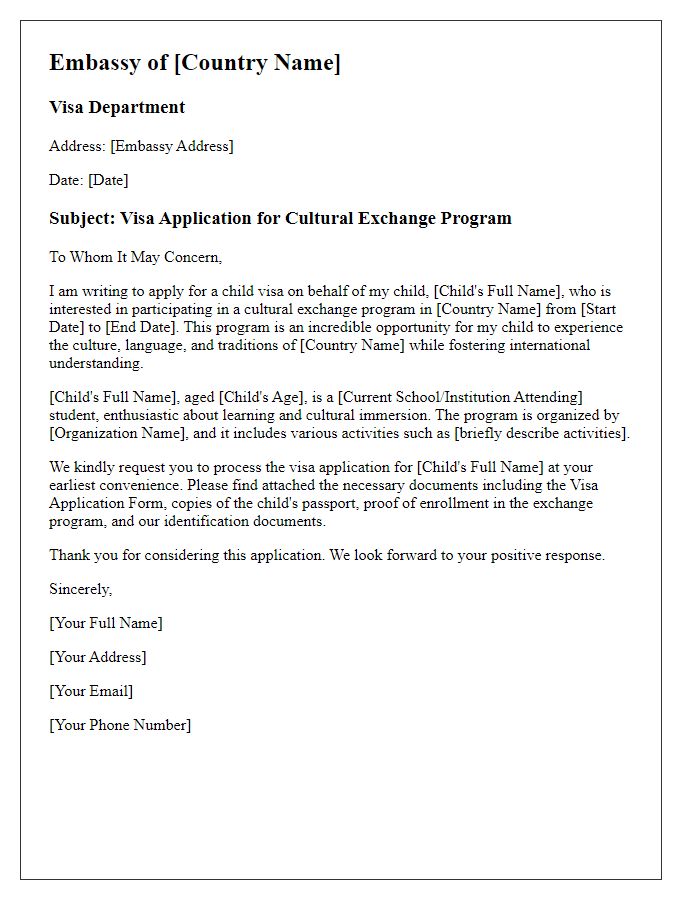
Letter template of embassy child visa application for humanitarian reasons.
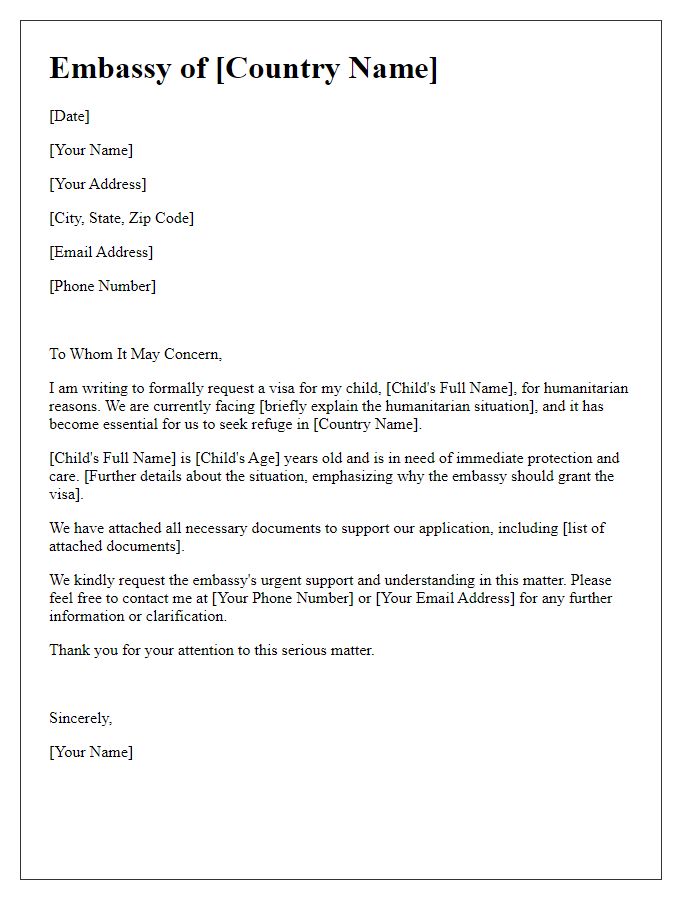

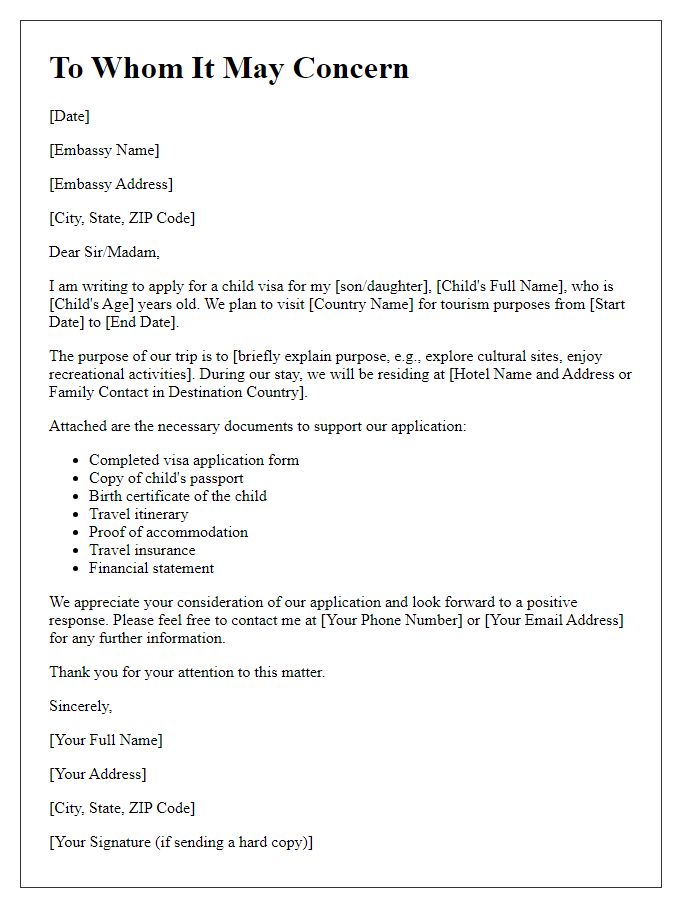
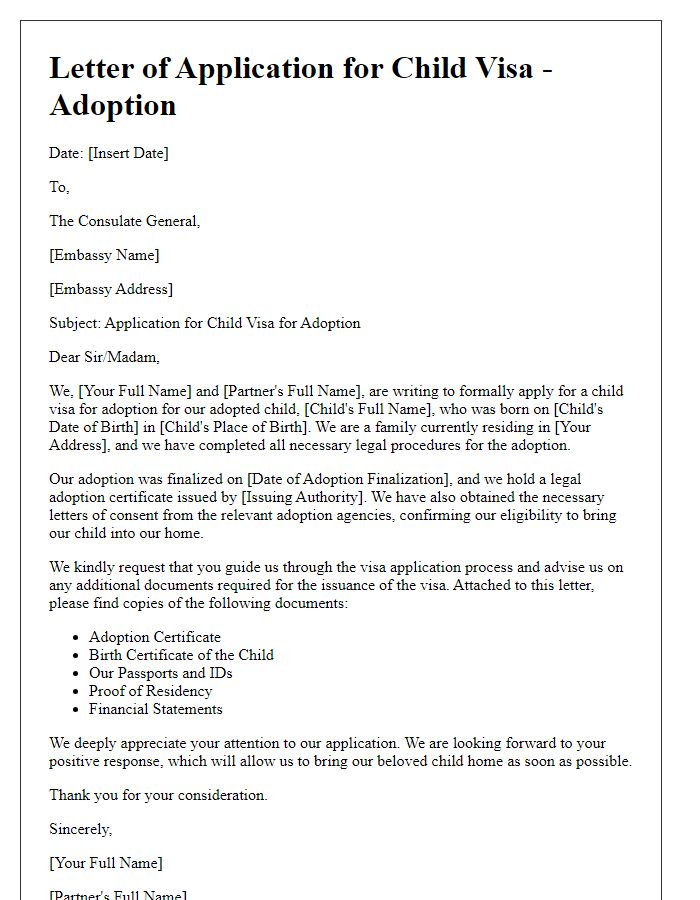
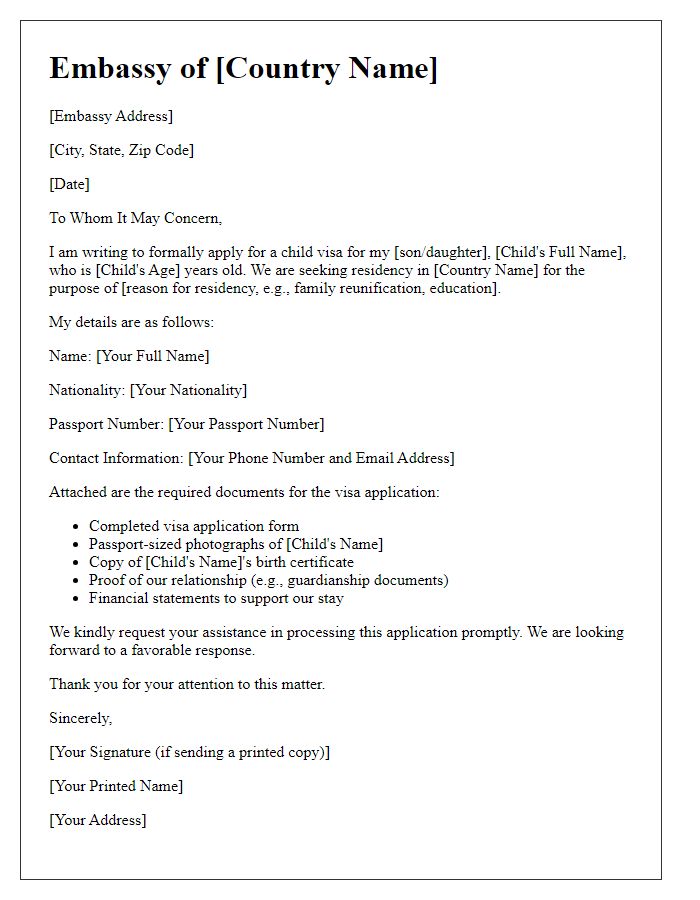
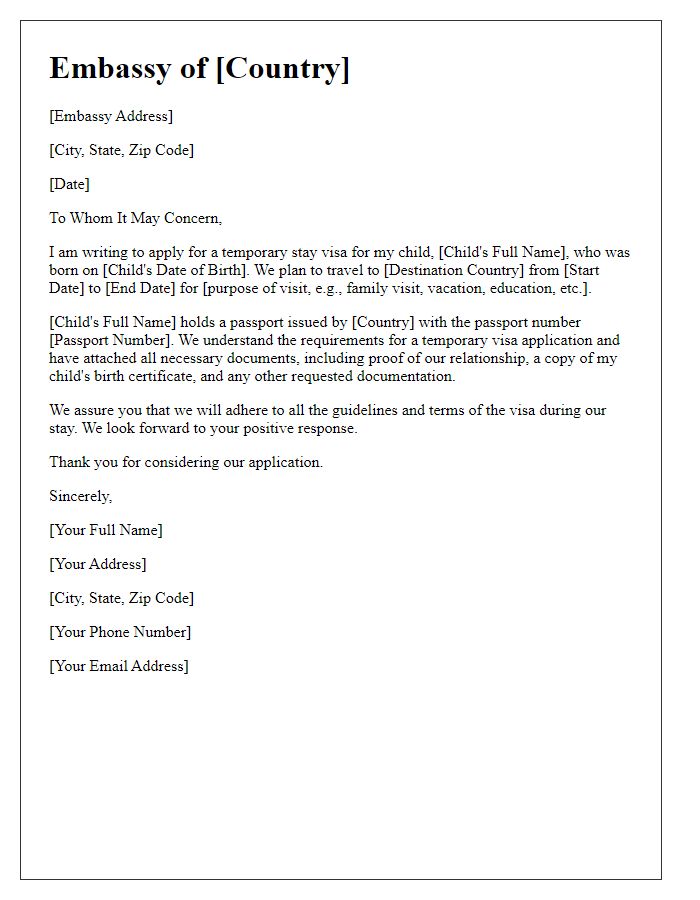
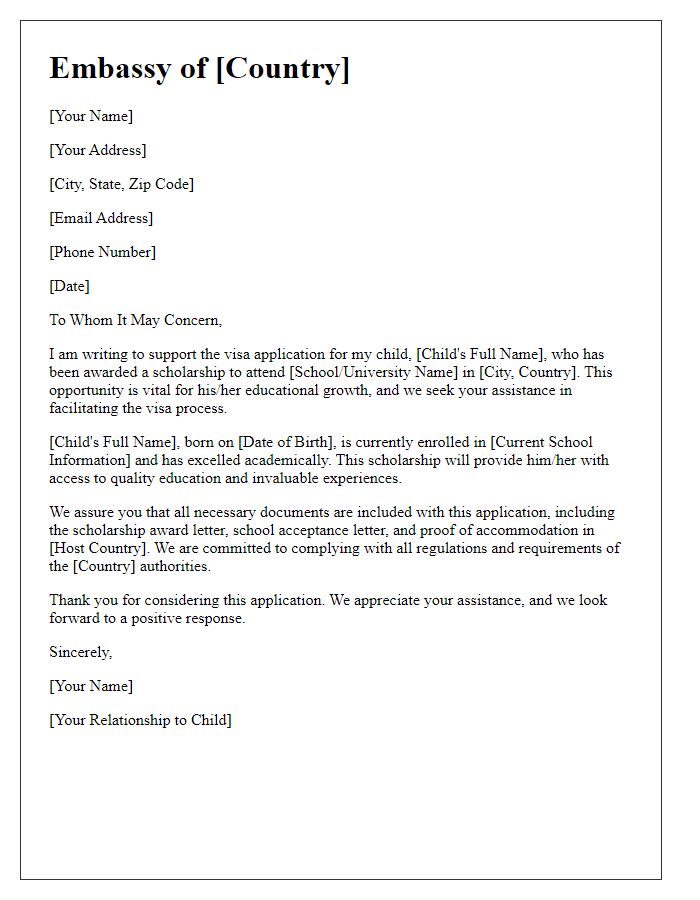

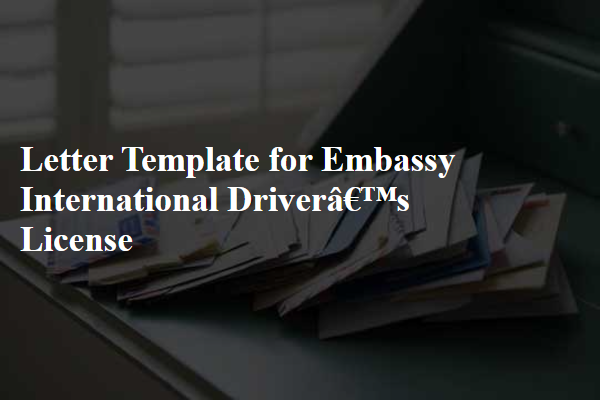
Comments